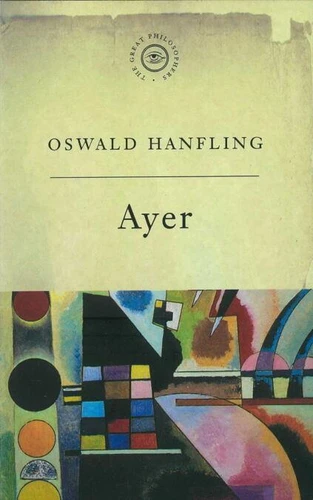The Great Philosophers: Ayer. Ayer
Par :Formats :
Disponible dans votre compte client Decitre ou Furet du Nord dès validation de votre commande. Le format ePub protégé est :
- Compatible avec une lecture sur My Vivlio (smartphone, tablette, ordinateur)
- Compatible avec une lecture sur liseuses Vivlio
- Pour les liseuses autres que Vivlio, vous devez utiliser le logiciel Adobe Digital Edition. Non compatible avec la lecture sur les liseuses Kindle, Remarkable et Sony
- Non compatible avec un achat hors France métropolitaine
 , qui est-ce ?
, qui est-ce ?Notre partenaire de plateforme de lecture numérique où vous retrouverez l'ensemble de vos ebooks gratuitement
Pour en savoir plus sur nos ebooks, consultez notre aide en ligne ici
- FormatePub
- ISBN978-1-78022-152-6
- EAN9781780221526
- Date de parution13/09/2011
- Protection num.Adobe DRM
- Infos supplémentairesepub
- ÉditeurWeidenfeld & Nicolson
Résumé
Part of the GREAT PHILOSOPHERS series. A. J. Ayer 1910-1989Ayer is best remembered for Language, Truth and Logic (1936), which introduced British and American readers to the logical positivism of the Vienna circle. Hanfling shows in this introduction to Ayer's work how he turned this philosophy into a form of British empiricism in the tradition of Hume. According to Ayer, philosophy is an activity of analysts.
Metaphysical truths can be neither established nor refuted by philosophical enquiry: they are meaningless. In support of this claim, he deployed his 'principle of verifiability'. But he found it difficult to refine the principle 'in such a way as to find a middle ground between [an] over-strict requirement' which would disqualify perfectly ordinary statements as meaningless, and 'the over-indulgent licensing of gibberish' - including that of metaphysics.
Metaphysical truths can be neither established nor refuted by philosophical enquiry: they are meaningless. In support of this claim, he deployed his 'principle of verifiability'. But he found it difficult to refine the principle 'in such a way as to find a middle ground between [an] over-strict requirement' which would disqualify perfectly ordinary statements as meaningless, and 'the over-indulgent licensing of gibberish' - including that of metaphysics.
Part of the GREAT PHILOSOPHERS series. A. J. Ayer 1910-1989Ayer is best remembered for Language, Truth and Logic (1936), which introduced British and American readers to the logical positivism of the Vienna circle. Hanfling shows in this introduction to Ayer's work how he turned this philosophy into a form of British empiricism in the tradition of Hume. According to Ayer, philosophy is an activity of analysts.
Metaphysical truths can be neither established nor refuted by philosophical enquiry: they are meaningless. In support of this claim, he deployed his 'principle of verifiability'. But he found it difficult to refine the principle 'in such a way as to find a middle ground between [an] over-strict requirement' which would disqualify perfectly ordinary statements as meaningless, and 'the over-indulgent licensing of gibberish' - including that of metaphysics.
Metaphysical truths can be neither established nor refuted by philosophical enquiry: they are meaningless. In support of this claim, he deployed his 'principle of verifiability'. But he found it difficult to refine the principle 'in such a way as to find a middle ground between [an] over-strict requirement' which would disqualify perfectly ordinary statements as meaningless, and 'the over-indulgent licensing of gibberish' - including that of metaphysics.



